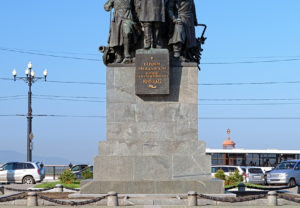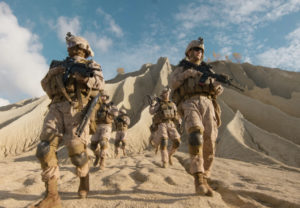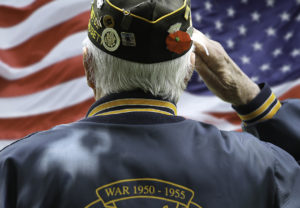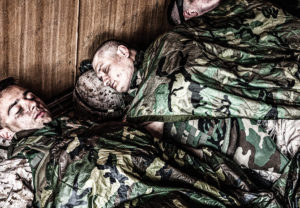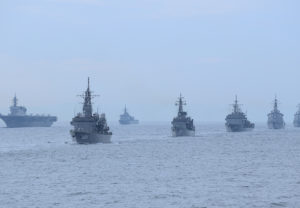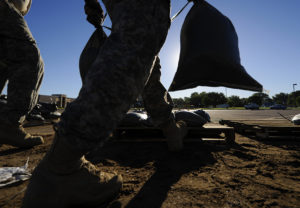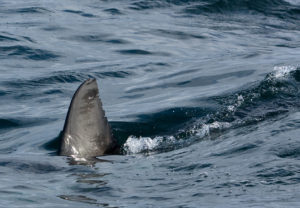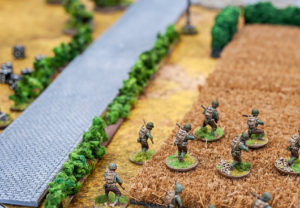Remember that time we were able to corner ISIS because its militants stupidly tweeted their coordinates? Or the time when a militant uploaded a video of himself in front of his cell’s base, and the U.S. military was able to use that video to lock onto the base’s location?
Those stories represent great victories for our military members, but they also serve as grim reminders that any social media post can be used by domestic and foreign enemies.
And thus, we get this.
 This image, posted to Twitter by US Air Forces Central Command, harks back the military’s efforts to promote secrecy and discretion during World War II. Propaganda posters said “Loose lips sink ships” and “Bits of careless talk are pieced together by the enemy” cautioned troops to watch what they said just in case an Axis spy heard them talking.
This image, posted to Twitter by US Air Forces Central Command, harks back the military’s efforts to promote secrecy and discretion during World War II. Propaganda posters said “Loose lips sink ships” and “Bits of careless talk are pieced together by the enemy” cautioned troops to watch what they said just in case an Axis spy heard them talking.
If it was vital to keep military movements secret in WWII, it’s even a bigger issue now. An innocent tweet from a low-ranking serviceman can be read by Internet users around the world and GPS data attached to that message can be easily accessed.
Moreover, the average Twitter user won’t know if he or she is being followed by an ISIS agent or sympathizer. A careless tweet thrust into the void can easily fall into the hands of a ‘lone wolf’ who wishes harm upon American military members.
The Navy released a video a few months ago reiterating the importance of remaining discrete on social media.








